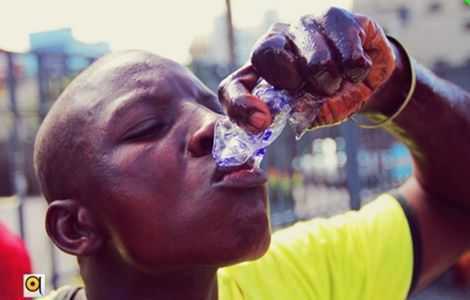The revelation last week by a UNICEF Ghana study that three out of four Ghanaians are at risk of drinking water contaminated with faecal matter is indeed troubling, and as such must be acted upon immediately.
The fact that traces of faecal matter were found in all samples of the various water sources collected across the country, including improved water used in households to the point of consumption, must scare us and move us to do all it takes to ensure every water we ingest is clean and free of contaminants.
That even what we commonly refer to as pure water (sachet water) because it is presumed clean and devoid of any form of contamination, was also found to contain traces of (Escherichia coli) E.coli, a bacteria, means everyone is at risk of consuming faeces.
Symptoms of E. coli infection include watery diarrhoea, nausea, vomiting, stomach pains, low fever and fatigue. Cholera, a bacterial disease usually spread through contaminated water, causes severe diarrhoea and dehydration.
If left untreated, cholera can be fatal, within hours, even in previously healthy people, and Ghanaians know too well what that means, as it has a history of cholera outbreaks, including the serious one that occurred in 2014 which killed over 200 people.
The disclosure by the UNICEF Ghana Chief of Water, Sanitation and Hygiene (WASH), Ramesh Bhusal, on the state of the country’s drinking water, at the second in the series of Media Cafe UNICEF Ghana, organised for journalists on WASH, also pointed to how water is stored, collected and handled as the primary causes of the contamination.
He also said that the study showed that 3.5 million people still used unsafe water sources, including surface water, in Ghana, while close to three million households in the country, representing 37 per cent of the population, used sachet water totalling 27 million pieces, on a daily basis, as their primary source of drinking water.
These must give our agencies and stakeholders in WASH a lead as to how to tackle the contamination issue headlong to prevent a health catastrophe in the country.
Water, as the sages say, is life and indeed no human on earth can do without it, as we all depend on it from the cradle to the grave.
Some have even predicted that the next world war may be fought over water if we do not preserve what is left of the world’s remaining scarce water resources.
Sachet water has now become the must-drink option due to aggressive marketing by producers who have succeeded in making the public believe that it is the cleaner option other than tap water.
The Daily Graphic believes that this is where the populace must have a rethink, and our utility provider, Ghana Water Limited, must not only do all in its power to pipe as many households as possible, but sensitise the public to the cleanliness of tap water because it is treated.
Over the years, the confidence of the public in piped water has waned because at a point the pipelines became obsolete, and also got ruptured, thus carrying contaminated water to homes, but we believe that if a conscious effort is made to ensure water carried from the water treatment point to homes and consumers was intact, we would see reduced contaminated water.
Indeed, the government must invest more in WASH programmes and projects to keep everyone safe at all times. This is crucial since one in six households in the country currently defecate in the open because they do not have toilet facilities. It is not difficult to see why our water is contaminated with faeces.
The Daily Graphic urges all residents in the country to think water safety, and ensure that we handle drinking water with thoroughly clean hands and also be conscious of the source of the water we consume.
Source: Daily Graphic
| Disclaimer: Opinions expressed here are those of the writers and do not reflect those of Peacefmonline.com. Peacefmonline.com accepts no responsibility legal or otherwise for their accuracy of content. Please report any inappropriate content to us, and we will evaluate it as a matter of priority. |
Featured Video


















